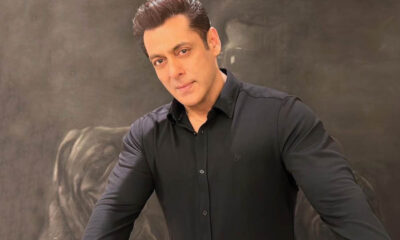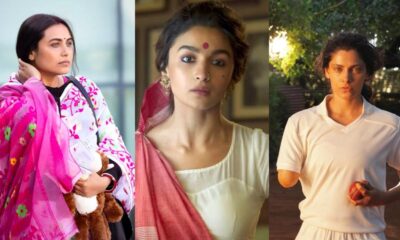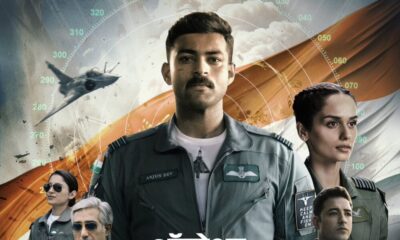Features
Kashmir Calling! Time and again Bollywood is wooed by the charms of the Valley
Kashmir was, is, and continues to be a favourite of Bollywood filmmakers when it comes to showcasing romance in their films
Published
5 years agoon
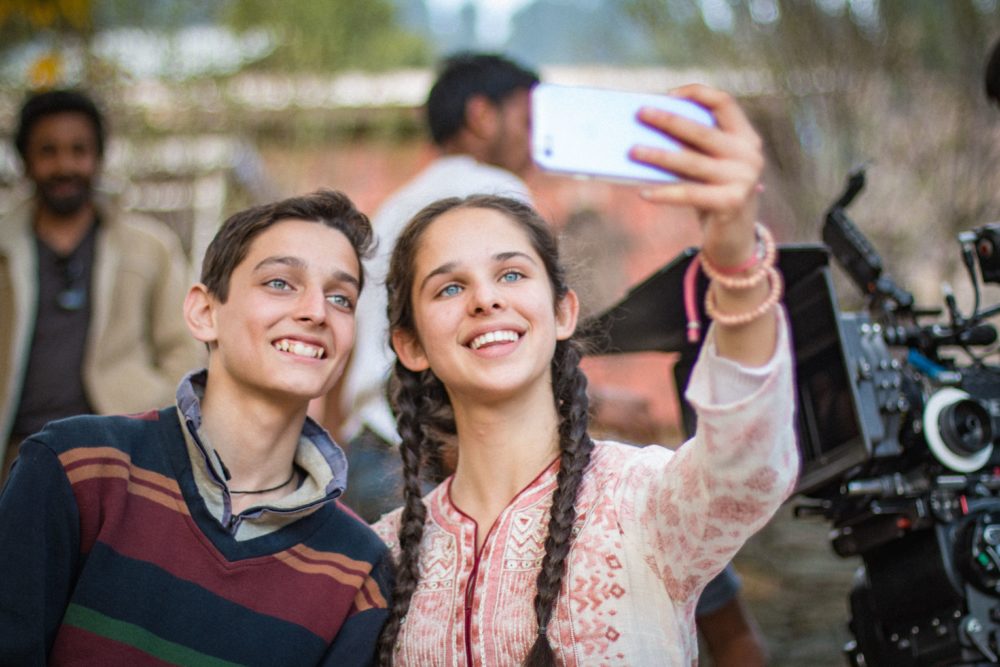
‘Yaaaahoo’ was Shammi Kapoor’s jubilant call before rolling down the snowy mountains deliriously in the film Junglee (1961). Not only did his stocks soar as a star after that display of uninhibited joy, it also triggered off a major Kashmir-rush for those wanting to experience the ethereal beauty of the place for real. The location became an integral part of Bollywood movies since then, especially with the success of the Shammi-Sharmila Tagore starrer, Kashmir Ki Kali (1964).
The valleys of Kashmir have since then, played a major role in some of the most breezy Hindi film romances, as well as films in other genres too. These include Arzoo (1965), Mere Sanam (1965), Kabhi Kabhie (1976), Noorie (1979),Silsila (1981), Roja (1992), Dil Se (1998), Mission Kashmir (2000), LOC: Kargil (2003), Yahan (2005), Shaurya (2008), Lamha (2010), Rockstar (2011), Jab Tak Hai Jaan (2012), Bhaag Milkha Bhaag (2013), Highway (2014) and Fitoor (2016). The real-life spy thriller, Raazi was shot completely in Kashmir. Vicky Kaushal’s Aditya Dhar-directed Uri: The Surgical Strike was shot in the Valley too. And the most recent releases Notebook directed by Nitin Kakkar and Ashvin Kumar’s No Fathers in Kashmir too have been entirely shot there.
Film analyst Dilip Thakur observes that Indian cinema stepped out of the studio for the first time to shoot outdoors in Kashmir. It topped prominent filmmakers’ list, including Ramanand Sagar, BR Chopra and Shakti Samanta who utilised Kashmir in magnificent ways in their cinema. The affair with Kashmir came to a halt post Subhash Ghai’s Karma. With militancy on the rise in the region, Hindi films took a break from their favourite location, only to go back to it for Vidhu Vinod Chopra’s Mission Kashmir starring Sanjay Dutt and Hrithik Roshan, a film that was shot under heavy security.
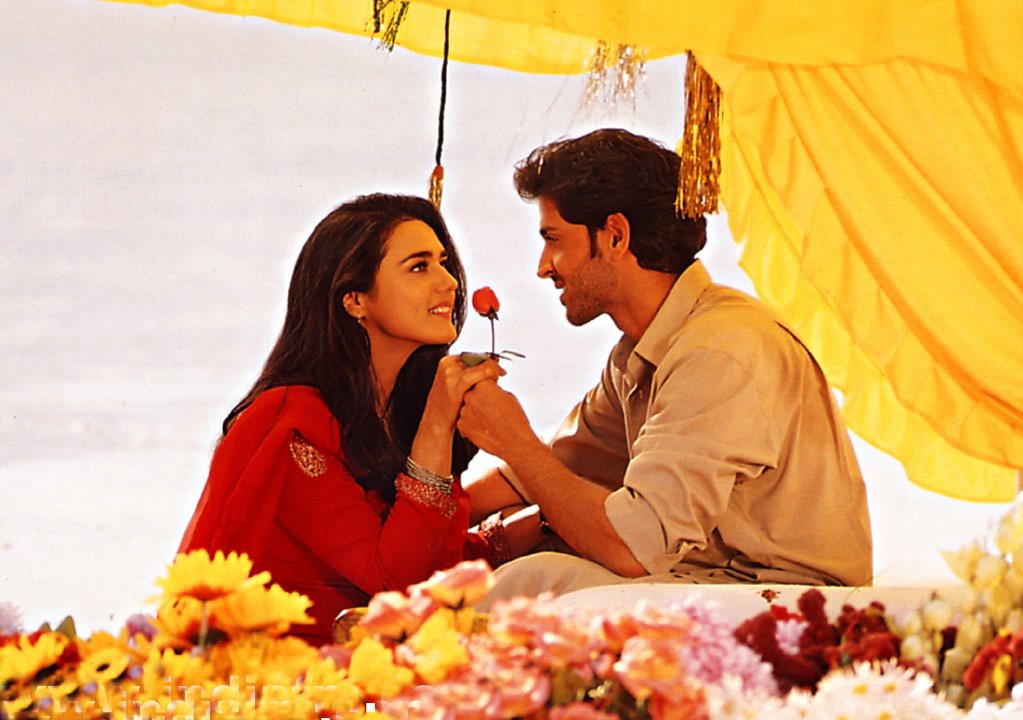
There is much Bollywood lore associated with the place. It was while shooting a song of Karma with Sridevi in Kashmir, that Ghai first noticed Madhuri Dixit, who was also there shooting for the film Aawara Baap, with her hero Raj N Sippy. Ghai and choreographer Saroj Khan called Madhuri and told her not to waste her time in small films. They re-launched her in Ram Lakhan.
Documentary filmmaker Reetu Asrani who is currently shooting in Kashmir for a web-series on the state said that Kashmir as a location continues to be under-explored, and that there are a number of locations that could yet be tapped. Reetu said, “I cannot blame Bollywood for it, but there is lack of infrastructure and no proper approach or roads to the beautiful but remote locations within Kashmir.” Reetu gives full credit to Bollywood for promoting tourism. She said, “Chand sa roshan chehra from Kashmir Ki Kali has immortalised the Dal lake. I feel Bollywood can play a bigger role by shooting in those places which are under-explored. So after these people explore it for movies, tourists who have already visited Kashmir can return to see the newer locations of the paradise called Kashmir.”
A symbol of romance
Kashmir’s fame as a Lovers’ Paradise was amped up by the films and boosted tourism in a big way. Senior writer Chaitanya Padukone said, “The audiences wanted to feel and enact the same romantic aura that was created on the big screen. I have seen people scream ‘Yahoooo’, and roll down the snowy slopes, or jump like Shammi Kapoor in the shikaras on Dal Lake. Though Switzerland replaced the Valley in the nineties, it still remains the first choice for every filmmaker.’’
Kashmir always had an intimate relationship with Bollywood. There is a location named after the film Betaab, after it was shot there. Yash Chopra also made sure that all his hero and heroines romanced in Kashmir. Most of his films, including his 2004 epic, Veer-Zaara were shot there. Sharing an anecdote about Silsila, Dilip Thakur said, “The original heroines of Silsila were Padmini Kolhapure and Parveen Babi. Chopra travelled to Kashmir to meet Amitabh Bachchan who was shooting for a film. The decision to get Rekha and Jaya Bachchan to do the film was made there.”
Kashmir has always been a part of Bollywood’s narrative from the time it entered the film scene. Padukone adds, “Not only stories, even songs promoted Kashmir – be it the song Kashmir ki kali hoon main (Junglee) or Yeh Kashmir hai (Bemisaal). The initial stories that came out of Kashmir were breezy romances, which changed with Roja – romances got replaced by stories of insurgency in Kashmir as the backdrop.”
Faking Kashmir
Bollywood started cheating the audience by showcasing Kulu Manali as Kashmir. The entire Kashmir portion of Roja that highlighted the unrest in the state was actually shot in Kulu Manali. There are some films that were made on the same issue like Yahaan, which was beautifully shot by Shoojit Sircar.
Kashmiri filmmakers like Danish Renzu, who won the Best Director’s Award at the New Jersey Indian International Film Festival, had highlighted the plight of the women there in his film Half Widow (2017) in Kashmir during the insurgency. Says Renzu, “My film explores the real Kashmir with Kashmiri characters that not only show the plight of Kashmiris, but also the way forward.’’ Renzu’s film is yet unreleased in India, even as two more of his films are in the pipeline.
There is one request that this Los Angeles-based filmmaker has for Bollywood. He says, “If they are making films on Kashmir as a topic, and with Kashmiri characters, we would like them to be authentic about the reality in Kashmir. They should tell stories that do justice to the sentiments of people, but at the same time trigger hope and survival. I liked Haider a lot. It was the last film that showed the plight of Kashmiris in the most authentic way possible.’’ There’s hope yet for Danish, Ashvin Kumar’s No fathers In Kashmir is just what he asked for.
Rise of Kashmiri talent in Bollywood
A number of Kashmiri actors have made it big in Bollywood. The filmmakers are also making sure to hire and train local actors and technicians for films that are shot in Valley. Casting director Mukesh Chhabra, who recently cast local talent for Salman Khan’s production Notebook, directed by Nitin Kakkar, informs, “Casting the amazing kids in Notebook was fun. We auditioned more than 300 kids from Kashmir and then narrowed them down. Being from Kashmir, their innocence and purity came through unadulterated and so magically. Their performance in the film speaks for itself.” When asked about Kashmir and Kashmiri talents’ entry in mainstream movies, and what they need to do, Chhabra adds, “They just need to trust us!”
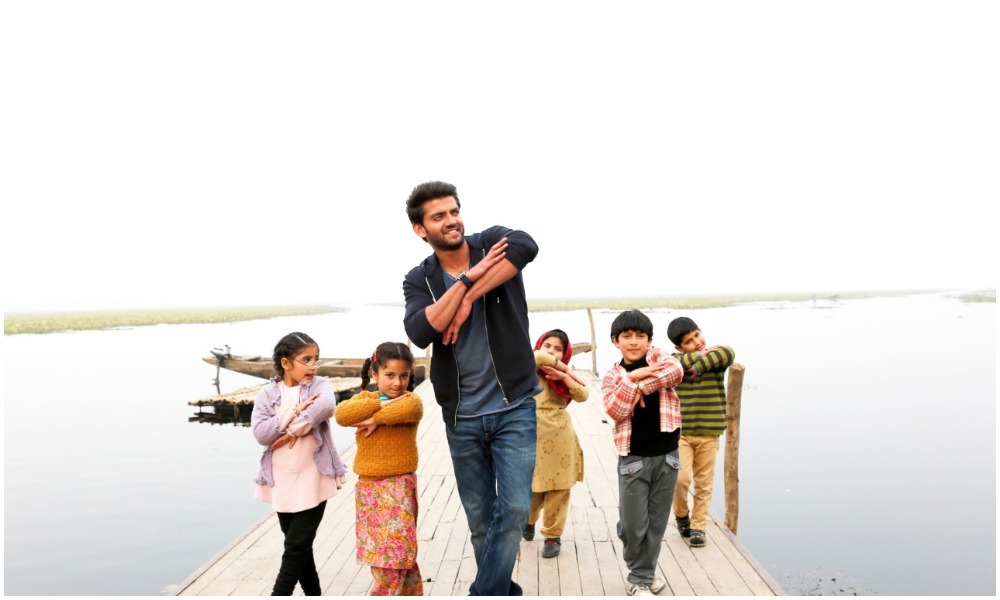
Ashvin Kumar’s teen protagonist Majid in his film No Fathers In Kashmir, is also a local Kashmiri and the filmmaker reveals that the casting took him almost six months. “While the key characters were professional actors, we’ve cast a lot of local talent including the protagonist. The girl however is a Brit Kashmiri since we needed an authentic accent and looks,” shares Ashvin. The filmmaker has also imbibed the Sufi flavour of the Valley’s most-renowned poet Habba Khatoon, and one of the songs in NFIK is an adaptation of the love poetry of the poet. Interestingly, the John Abraham starrer Romeo Akbar Walter that releases on April 5 along with No Fathers in Kashmir, also had a ten-day schedule in the Valley, and also liaised with local-co-ordinators for hiring local talent.
Actors on Kashmir:
Alia, who had shot for Highway and then Raazi, has described it as the warmest place on earth, referring to the native Kashmiris. Mahesh Bhatt’s Jalebi and director Imtiaz Ali’s Laila Majnu are love stories with Kashmir as the backdrop. South Indian films are also being shot in places like Srinagar, Gulmarg and Sonmarg. Dangal star Fatima Sana Shaikh shares a warm connection with the place too and hopes to visit her childhood home someday.
Soni Razdan who hails from Kashmir, also stars in Ashvin Kumar’s No Fathers in Kashmir. Talking about her connection with Kashmir, she exclusively shared with us, “I am part Kashmiri, but I think I am more of a Kashmiri in name, not so much in fact, because I have never lived in Kashmir. But doing a film which is set in Kashmir in these times, my mindset was very in-tune with the kind of role I was playing, the space that we were inhabiting and the sort of situation it was all about.”
The actress however, reveals that working on this film as well as on Raazi, has brought her closer to the state. She adds, “This film has actually drawn me a little closer to the state of Kashmir. And because of this film (NFIK) and then Raazi, I became fascinated with these issues and started travelling there more often. I also made some friends there. It drew me closer to Kashmir than I could have thought of. So very uniquely, after I started this film, I will say that I have started this journey towards Kashmir perhaps, which I didn’t have earlier, and these myths were dispelled and a lot of those fear factors went away. I realised that Kashmiris, like everybody else, just want to have a normal life, they want to have fun like other people do, and not be depressed and dealing with issues all the time. There are not really different from you and me, but of course, it is a very complex place. So a lot is required for people to start getting a better understanding of why things are the way they are in Kashmir.”
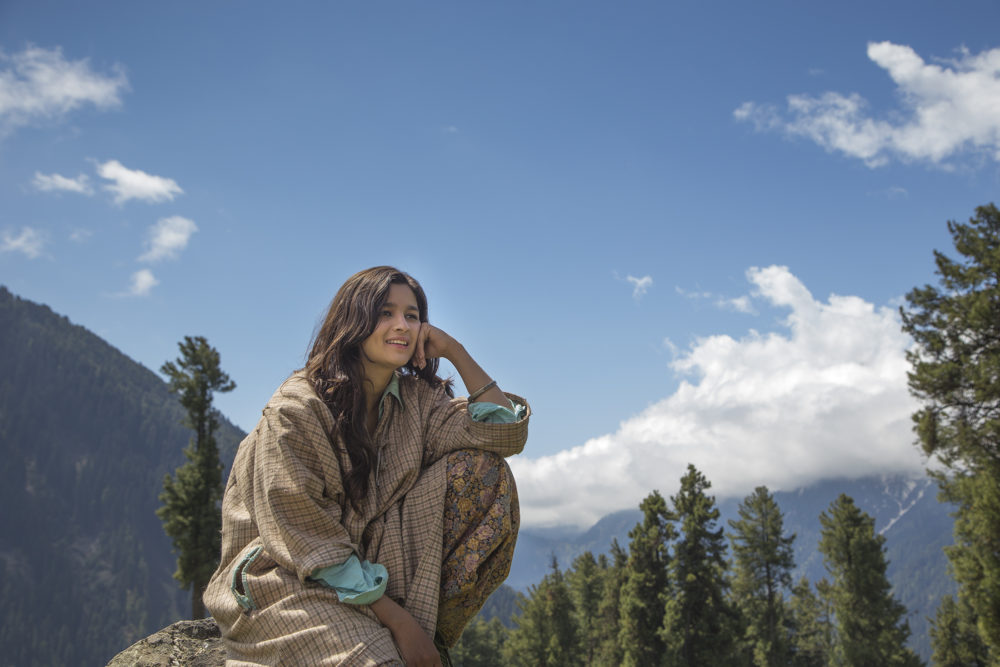
Reality check:
Filmmaker Ashoke Pandit, who hails from Kashmir, informs, “Post 1989-90, the situation in Jammu and Kashmir has been quite volatile. Things went out of control and terrorism took over with the support of local political parties. The film industry like always, kept away from the politics, not only of Kashmir, but of other places also. As far as Kashmir is concerned, terrorism didn’t affect Bollywood as it is the source of their income. They know that we are not going to stay back in the valley, so they didn’t create trouble for those shooting films there. Having said that, the industry should show more concern towards major issues in Kashmir, and not turn a blind eye to realities pertaining to the Valley. The J&K government tried their level best to woo the industry to work there, so that they can tell the world that the situation is normal in the valley.’’
An unfulfilled dream
Bollywood has been wanting to bring to the screen the life of Kashmiri poet Habba Khatoon for a really long time. Mehboob Khan had announced his film with Saira Banu and Dilip Kumar. In the 80s, there were talks of BR Chopra wanting to make the film with Zeenat Aman and Sanjay Khan, with music by the legendary Naushad. The last attempt was by Muzaffar Ali, who was to make the film with Dimple Kapadia and Vinod Khanna. A dream project for the filmmaker, it was supported by the establishment but sadly, could not be made.
You may like


6 Bollywood divas who have more than 70 million followers on Instagram


Soni Razdan and Divyah Khossla to commence the first schedule of Prerna Arora’s Hero Heeroine from 10th June


Salman Khan announces his next titled Sikandar; film to release on Eid 2025


Vedaa teaser: John Abraham and Sharvari perform jaw-dropping high-octane stunts


Women’s Day: 7 Bollywood actresses who shined in portrayals of persistence, strength, and resilience


Salman Khan launches the trailer of Operation Valentine starring Varun Tej and Manushi Chhillar





